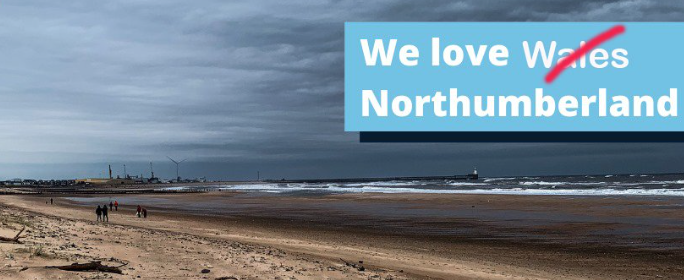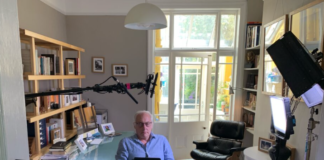- Rocket man - 2nd March 2026
- Death wish two - 2nd March 2026
- News to celebrate! - 1st March 2026
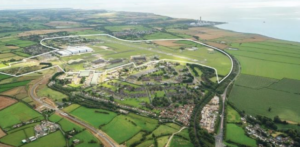
Disclosure of attempts to find huge new funding streams by a controversial car battery firm, focuses attention on The Eye revealing how the company was established by a man convicted of tax fraud, and which ditched a planned site in South Wales despite the fact that its proposals had been greeted with huge fanfare by politicians and reporters in the mainstream media.
Britishvolt (BV) said that it was aiming to raise £350 million from institutional investors this spring and summer before potentially heading for a ‘blank-cheque’ transaction in the United States of America (USA).

BV has appointed Barclays to oversee the enormous funding challenge, as well as the corporate finance group, Guggenheim.
Earlier BV had also applied for backing from a £1 billion UK Government fund set up to support the mass production of batteries and help the auto industry shift towards making electric vehicles (EVs).
The fund was announced by Boris Johnson in November as part of plans to ban the sale of new cars and vans that run solely on petrol and diesel from 2030.
But BV has been no stranger to controversy in the past.
The company’s Chairman and co-founder, Lars Carlstrom, had been convicted of tax fraud in Sweden, stepping down in December, and Chief Strategy Officer Isobel Sheldon said the company was severing all ties with him.
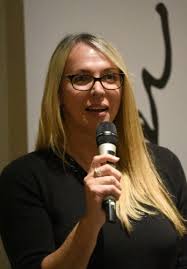
Mr Carlstrom was also handed a four-year trading ban in the late 1990s.
He was later, too, accused of acting negligently by Sweden’s tax authority over a separate unpaid tax bill for one of his companies in 2011. Mr Carlstrom said: “I don’t wish to become a distraction”.
As the website North East Bylines (NEB) put it: “He was the same individual whose track record had been queried by The Eye when reviewing the proposed location in Wales in July last year, and who seems still to be a major shareholder”.


BV had chosen a site near St Athan, then stunned officials and politicians by announcing that the factory would instead be built in Blyth, Northumberland. Neil Moore, leader of Vale of Glamorgan council, said: “They were given a better deal elsewhere. I was surprised when they pulled out”.
BV had apparently acquired the Blyth site over the Welsh alternative because of better connections to renewable power sources such as windfarms in the North Sea, as well as an interconnector to Norway’s hydroelectric power – with timing difficulties in Wales also a factor.
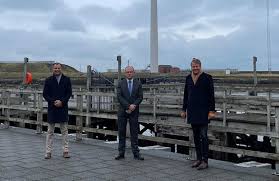
As the report in NEB showed, our research featured in publications in the North East of England after the firm had declared in the Summer that it would not, after all, build the St Athan plant in the Vale of Glamorgan but move to Blyth instead.
The website said: “In July 2020 this (the plans for the battery factory) seemed a welcome bonus for Wales and the prospects of a large new green manufacturing capability with thousands of jobs could only be good news. Except, however, when doubts were quietly raised by The Eye, an investigative news and journalism website ‘looking into misdemeanours by organisations and individuals in Wales and the UK.’
 The questions about prominent figures behind BV have long been persistent, while only our journalists have raised them (apart, now, from NEB).
The questions about prominent figures behind BV have long been persistent, while only our journalists have raised them (apart, now, from NEB).

We had been alone in disclosing that a key director had a failed business behind him, possessed links to a former football club owner who was jailed for fraud, and another one until recently lived in a small flat in a Cardiff terraced house.
Our research could find no record of any director having a background in battery manufacturing. The venture, though, was met with wild acclaim in the mainstream media and by senior politicians, when it emerged.


BBC Cymru Wales (BBC CW) proclaimed: “The firm behind a proposed battery factory which could create 4,000 jobs has listed a site in Wales as its ‘preferred option’”.
The website WalesOnline declared: “Plans for a giant factory and thousands of jobs for the Vale of Glamorgan have been revealed. Battery manufacturer Britishvolt announced … that two sites are in the running for their factory, with Bro Tathan business park (near St Athan) leading the way”. In July it said: “Plans for a factory producing electric car batteries that would bring thousands of jobs for the Vale of Glamorgan have moved a step closer.”.

This was The Times: “Ambitious plans have been revealed for Britain’s first gigafactory capable of producing enough fuel cells and battery packs to power 100,000 zero carbon electric cars.
“The project in south Wales, which is designed to put the UK in the race to be a global hub for the electrified vehicle industry, comes from Britishvolt, a start-up company founded by a Swedish automotive entrepreneur best known as a former associate of Vladimir Antonov, the jailed Russian businessman. Britishvolt has unveiled plans to build a gigafactory capable of producing 10 gigawatt hours (GWh) of lithium ion batteries a year from early next year at Bro Tathan, on the Cardiff airport commercial complex where Aston Martin Lagonda has opened its new carmaking factory.”

The Secretary of State for Wales Simon Hart said it was “fantastic that we can talk about Wales as being a leading contender” for the UK’s first gigafactory.
The scheme for Wales, though, was soon scrapped, but crucial facts about the men backing it could have been easily discovered.
Investigations by our journalists at Companies House and elsewhere, revealed that a prominent director of BV was Couroush Alai who until recently lived in a modest flat at Lily Street in Cardiff, which appeared to be a terraced house converted into flats.

Mr Carlstrom, had been involved in a coach company at Coventry that was in debt to creditors for around £1 million. He had also been director of a watch manufacturer called Thrupp and Maberly which has now been dissolved. In 2011 it had first come to light that Mr Carlstrom was the “representative in Sweden“of Vladimir Antonov who had been jailed for fraud. Mr Carlstrom was involved in a sale and leaseback deal of property and plant belonging to the Swedish car maker Saab.

At an extradition hearing, the former ‘representative’ of Mr Carlstrom, Russian-born Mr Antonov, who once owned Portsmouth FC, said that the charges against him were part of a politically-motivated plot. Mr Antonov, whose father was shot and injured in Russia in 2009 over a suspected business dispute, claimed that he was at risk of attack in prison if he was sent abroad to stand trial.
Meanwhile before the announcement that the new plant would be built in Northumberland not South Wales, BV’s ‘Chief Executive’ Orral Nadjari, stated: “The first UK gigaplant will… be in an alternative location (to South Wales) which we will be announcing soon”. Yet Mr Nadjari claimed he had looked at more than 100 sites for the BV factory, before alighting on the former RAF site in Bro Tathan near St Athan.

In the way the news of the ‘alternative location’ (Blyth) has been welcomed, there would seem to be an uncanny echo of what happened in Wales.
The Blyth Valley MP, Ian Levy, said: “This is an incredibly exciting announcement that will have a massive impact in the constituency and the surrounding area for decades to come”.
It is, perhaps, less exciting that BV is trying to find huge new funding streams when The Eye revealed how the company was established by a man convicted of tax fraud, and which scrapped a site in South Wales despite the fact that its proposals had been greeted with huge fanfare by politicians and reporters in the mainstream media…

Tomorrow – The Eye’s satirical writer Edwin Phillips examines this extraordinary situation and why it hasn’t been identified in the mainstream media.
The memories of our Editor Phil Parry’s astonishing decades-long award-winning career in journalism when the interesting backgrounds of individuals were uncovered, as he was gripped by the rare neurological condition Hereditary Spastic Paraplegia (HSP), have been released in a major book ‘A GOOD STORY’. Order the book now!










